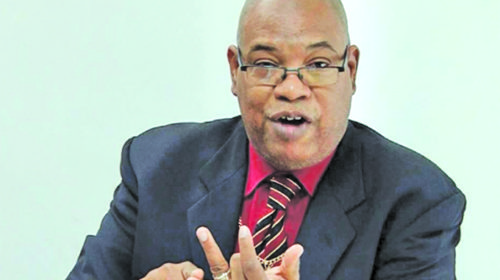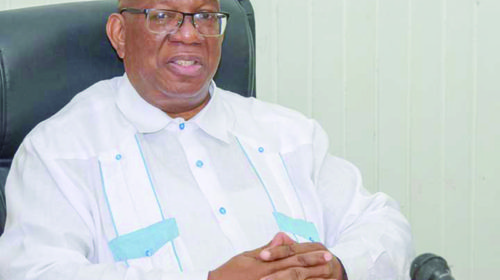
The caretaker Government’s efforts to seek nominees to various boards from the parliamentary Opposition have been rebuffed, with the People’s Progressive Party/Civic (PPP/C) reminding it that formulating State Boards when a No-Confidence Motion (NCM) has been passed was illegal.
It was only on Friday that the Caribbean Court of Justice (CCJ) reaffirmed its position that the Government should be acting in a caretaker capacity. Its ruling on the NCM was issued since June 18.
Article 106 (6) of the Constitution states: “The Cabinet including the President shall resign if the Government is defeated by the vote of a majority of all the elected members of the National Assembly on a vote of confidence.”
Yet, in a letter dated July 10, caretaker Finance Minister Winston Jordan invited the Opposition Leader Bharrat Jagdeo to submit a nominee to sit on the Investment and Macro Economic Committees of the Natural Resources Fund. The Fund was established in accordance with Act No 12 of 2019.
“The Office of the Leader of the Opposition wishes to remind you that this activity, which you seek to engage in, by inviting our nominations is unauthorised, outside of your constitutional mandate, and is not properly set in law,” PPP/C parliamentarian and former junior Finance Minister, Juan Edghill, wrote in response to the invitation in a missive dated July 15 that was seen by Guyana Times International.
“Act No 12 of 2019 followed as a result of a Bill that was debated in the National Assembly after December 21, 2018, when your Government was defeated by a majority vote on a motion of no confidence. In essence, your Government and you lost the mandate to pursue such actions as you did on January 3, 2019; you proceeded even against the best of advice and public pronouncements made.”
Edghill went on to remind the caretaker Minister of the CCJ’s consequential orders and the Judge’s reference to the Constitution’s unambiguous provisions. He, therefore, noted that the Minister’s actions were outside of what a caretaker government could do.
“It, therefore, follows that the Executive is now resigned and Government remains in office for the purpose of holding general and regional elections. As a member of the resigned Cabinet, you are not authorised to pursue the matters contained in the above-mentioned correspondences to the Leader of the Opposition.”

According to the Party, there can be no appointment of members of either the Macroeconomic Committee or the Investment Committee. “As such, there will be no nominations from the Leader of the Opposition. It is our hope that your Government and you will comply with the Constitution and adhere to the rulings of the CCJ, in all matters.”
Oil money
Earlier this year, the now caretaker Government signed the Natural Resources Fund Bill into law. The Bill sets out, among other things, a 22-member Public Accountability and Oversight Committee that will oversee the fund.
The Committee is supposed to include representatives from the media, Private Sector and the Bar Association. Among other things, it will oversee what decisions are taken regarding spending from the Fund, whether on social development or investments.
Following its 10th discovery of oil in the Stabroek Block, ExxonMobil had estimated the recoverable resource in the block to be five billion oil-equivalent barrels. With oil at US$50 a barrel, that equates to well over US$200 billion.
ExxonMobil has since revised this figure upwards after three more discoveries, the last one being at the Yellowtail-1 well in April. More drilling is also scheduled for this year and it was only recently that its first Floating Production, Storage and Offloading (FPSO) vessel bound for Guyana, the Liza Destiny, was commissioned.
In addition, an independent assessment, or competent persons’ report, had found that 2.9 billion barrels of oil existed in the Orinduik block. All of this will represent a monetary windfall for Guyana, which will be saved and invested through a Natural Resources Fund.



